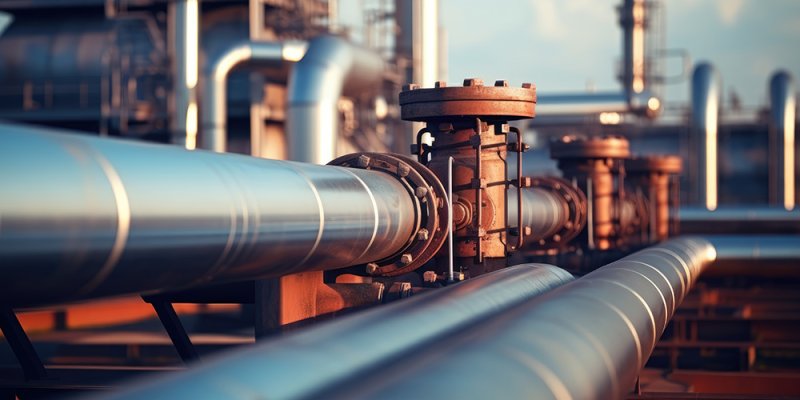

Topic of the month:
Market and price development since the end of February
Market and price development since the end of February
It was a crazy week between February 26 and March 2. The trading prices skyrocketed to unprecedented levels, the surpluses in the accounts of the market area operators melted away and some storage operators experienced that the last molecules of working gas were gone. In the topic of the month, I have tried to describe the development, identify the causes and to point out potential consequences. As always during my research, most people I talked to preferred not to be mentioned by name in this publication. Or in many cases, new insights are a side effect of informal unplanned talks.

Framework conditions
“Grand coalition
At last, Germany has a new government. The members of the Social Democratic Party (SPD) agreed with a surprisingly high majority (two thirds) to the coalition treaty. The new German government started to work mid-March. And regarding energy and climate politics it started with a strong move. The secretary of state, Rainer Baake, moved ahead of his alleged sacking and announced that would be leaving the ministry. In a two-page letter on March 5 to the designated minister of economics and energy at the time, Peter Altmeier, he wrote that “strong disappointment about the chapters on climate and energy policy” was the reason for his resignation (most likely Mr Baake himself distributed the letter widely). The transition to energy efficiency and renewable energies was being undertaken only hesitantly, it was added.
In the last edition, this publication mentioned some climate and energy topics from the treaty. Mr Baake’s disappointment is plausible. As a side note: One topic that was forgotten is the continuation of the subsidy scheme for the replacement of old boilers by new and efficient ones. Good for the gas industry: Subsidies are granted if efficient condensing boilers are installed. The previous ministry wanted to terminate the support if the new boilers are fuelled with conventional fossil fuels (ener|gate Gasmarkt 06/17). This continued support of conventional heating systems is most likely only a minor point for Mr Baake, but it is one topic by which the attitude of the new government towards energy and climate policy becomes visible (for major personnel decisions of the new government in the area of energy and climate policy, see chapter 4 on personnel).
Quo vadis study
In March, the EU Commission’s Directorate General Energy (DG Ener) published the final report of the Quo vadis study. ener|gate Gasmarkt reported in the edition 01/18 about the preliminary report and the workshop in which the preliminary report was discussed. The final version now contains not only the analysis of the current shortcomings of the internal market for gas and the four reform scenarios. It now also discusses the welfare effects of these scenarios and makes recommendation for the implementation of these measures. Peter Kaderjak, the director of the Hungarian think-tank REKK, one of the two authors of the study, had presented these effects during the workshop and ener|gate Gasmarkt included it in the report.

Frequently asked questions
What is the energate Gasmarkt?
The energate Gasmarkt provides specialists and executives in the gas industry with up-to-date information and background information on the German and international gas market. The medium expertly explains the most important developments in the fields of market, law, politics and business. In addition, the energate Gasmarkt offers insider information such as market rumors and personal details.
What is the energate Jahresreport Gas?
The energate Jahresreport Gas traces the most important market developments of the year and provides a well-founded outlook for the coming months. Gas expert and insider Dr. Heiko Lohmann analyzes relevant events in politics, law and regulation as well as on generation, infrastructure and trade. In addition, the report provides information on changes in the corporate landscape and tracks price developments in market reports. Top decision-makers from the industry use the Jahresreport Gas as a compact chronicle of the year and to assess future market developments.
How often are these publications released and in which formats are they available?
The energate Gasmarkt is published monthly. Subscribers will receive the energate Gasmarkt as a print and PDF version in German and English. The Jahresreport Gas is published annually (beginning of December).
Can I purchase individual issues of the energate Gasmarkt?
Yes, you can purchase individual isses as print or PDF version. Payment options include purchase on account, credit card or PayPal.
How much is a subscription of the energate Gasmarkt and how much does the Jahresreport cost?
A subscription to the energate Gasmarkt (single licence) costs 110,- Euro/month (plus VAT). An edition of the Jahresreport Gas costs regularly 390,- euro (plus VAT).
Are there any special conditions if several employees in a company would like to receive the Gasmarkt?
With several Gasmarkt recipients in one company, the price of the second and all other licenses is reduced significantly. We are happy to make you a fair offer for team or corporate licenses!
What benefits do I get by registering?
A free energate account is required to order the energate Gasmarkt or the energate Jahresreport Gas. Registered users receive an overview of the contents of the current issue of energate Gasmarkt by e-mail on the day of publication.
I would like to read energate Gasmarkt or energate Jahresreport Gas digitally. Where can I find my e-paper version?
As a subscriber to energate Gasmarkt or as a purchaser of energate Jahresreport Gas, you will also receive an e-paper version in addition to the print edition. You can find it at online.energate-gasmarkt.de. Please use your energate account to log in.

